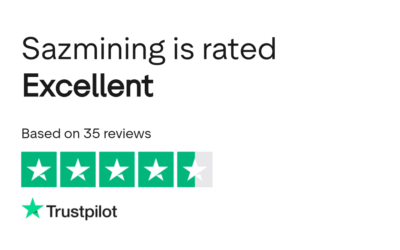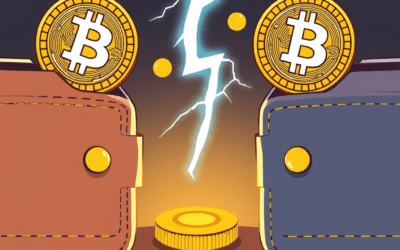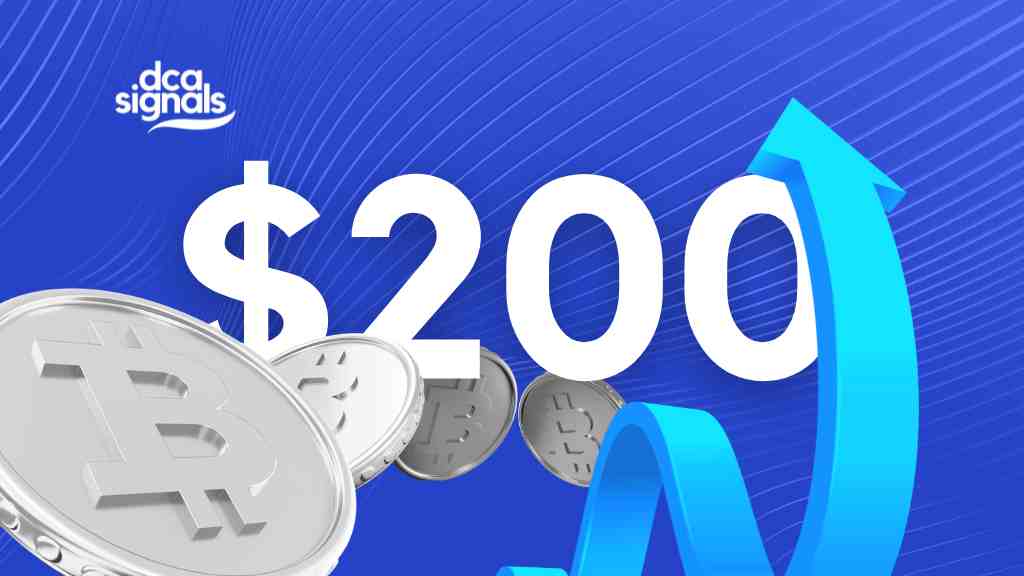In an interview with Cointelegraph, hedgefund manager Mark Yusko, CEO of Morgan Creek Capital, made bold assertions about bitcoin’s potential to revolutionize the financial world.
He emphasized that bitcoin is not just a cryptocurrency but the best form of money, destined to serve as the base layer of what he calls the “internet of value.”
This article delves into Yusko’s insights on bitcoin, its comparison to gold, and the broader implications for financial services and technology.
Bitcoin vs. Gold: A Shift in Market Dynamics
Mark Yusko believes that bitcoin will eventually absorb the entire market capitalization of gold, which currently stands at around $4 trillion. He forecasts that this transition could drive bitcoin’s price north of $500,000. In the short term, he predicts a five-fold increase in bitcoin’s value, potentially reaching $250,000 within the next few years.
The Financial Services Market
Mark Yusko points out that the financial services sector is vastly larger than information, media, and commerce combined. This presents a significant opportunity for Bitcoin to tap into a massive market, reinforcing its position as “the best form of money.” He draws parallels between the evolution of the internet and the emerging internet of value, suggesting that Bitcoin will serve as its base layer.
The Internet of Value: Layered Architecture
In the interview, Mark Yusko likens the structure of the internet of value to the original internet, which is built upon various protocols such as TCP/IP, SMTP, and HTTP. He envisions bitcoin as the foundational layer, with other technologies and tokens playing supportive roles. For instance, he compares SMTP to Filecoin and HTTP to Ethereum, suggesting that these technologies will facilitate file sharing and application development.
The Role of Lightning Network
While Mark Yusko acknowledges the importance of other tokens, he may overlook the capabilities of the Lightning Network, which is built natively on bitcoin. The Lightning Network extends Bitcoin’s base layer, enabling a broader range of use cases while maintaining the security and robustness of the Bitcoin network. This second-layer solution allows for instant transactions with minimal fees, making it ideal for various applications, including gaming and streaming services.
Enhancements from Taproot Activation
The recent activation of Taproot in November has further enhanced the Lightning Network’s capabilities. This soft fork improves bitcoin’s smart contract functionalities, allowing for more complex transactions to blend seamlessly with simpler ones. As the Lightning Network matures, it promises to eliminate many of the use cases traditionally associated with altcoins, rendering their value propositions redundant.
Interoperability: The Key to Success
A critical aspect of the internet, and by extension the internet of value, is interoperability. Mark Yusko emphasizes that having one blockchain per use case would be impractical. Instead, a layered approach, where various applications and services build on Bitcoin as the foundational layer, is essential for creating a cohesive financial ecosystem. The Lightning Network and its applications exemplify this principle, enabling a diverse array of functionalities while leveraging Bitcoin’s security.
The Future of Bitcoin and Financial Services
Mark Yusko’s insights into Bitcoin’s potential as the base layer of the internet of value highlight its transformative capabilities. As bitcoin continues to evolve, driven by innovations like the Lightning Network and the Taproot upgrade, it is poised to redefine the financial landscape. With its unique properties and robust security, bitcoin stands as the best form of money, ready to lead the charge into a new era of financial services.
As we move forward, it is crucial to recognize the importance of building on Bitcoin’s foundational layer. The future of finance lies in interoperability, security, and the seamless integration of various applications, all of which bitcoin and its layers can provide. Embracing this vision will not only enhance our understanding of value exchange but also pave the way for a more inclusive and efficient financial system.









